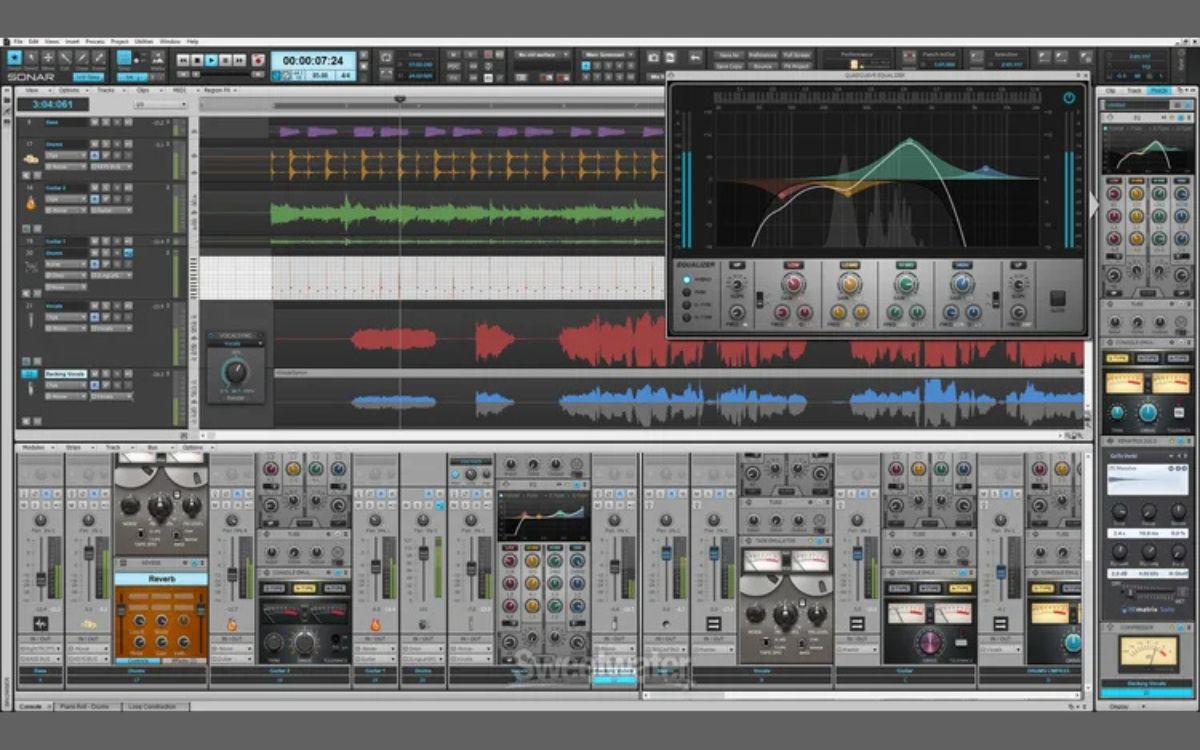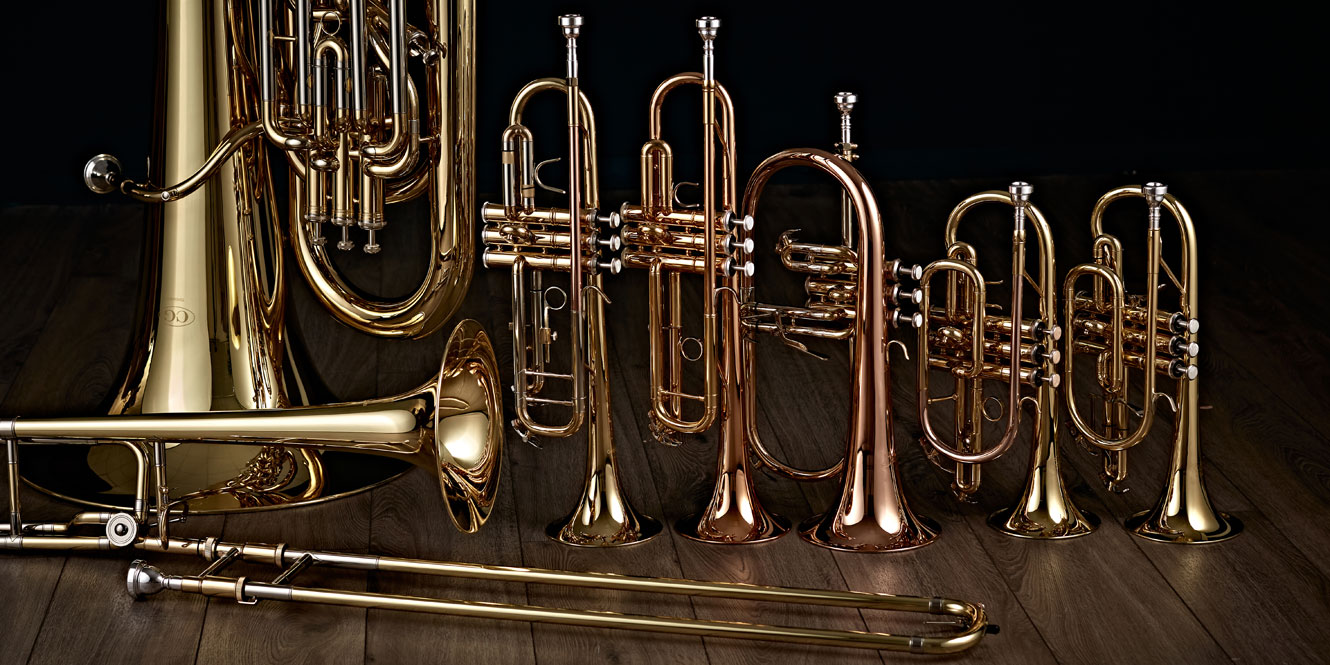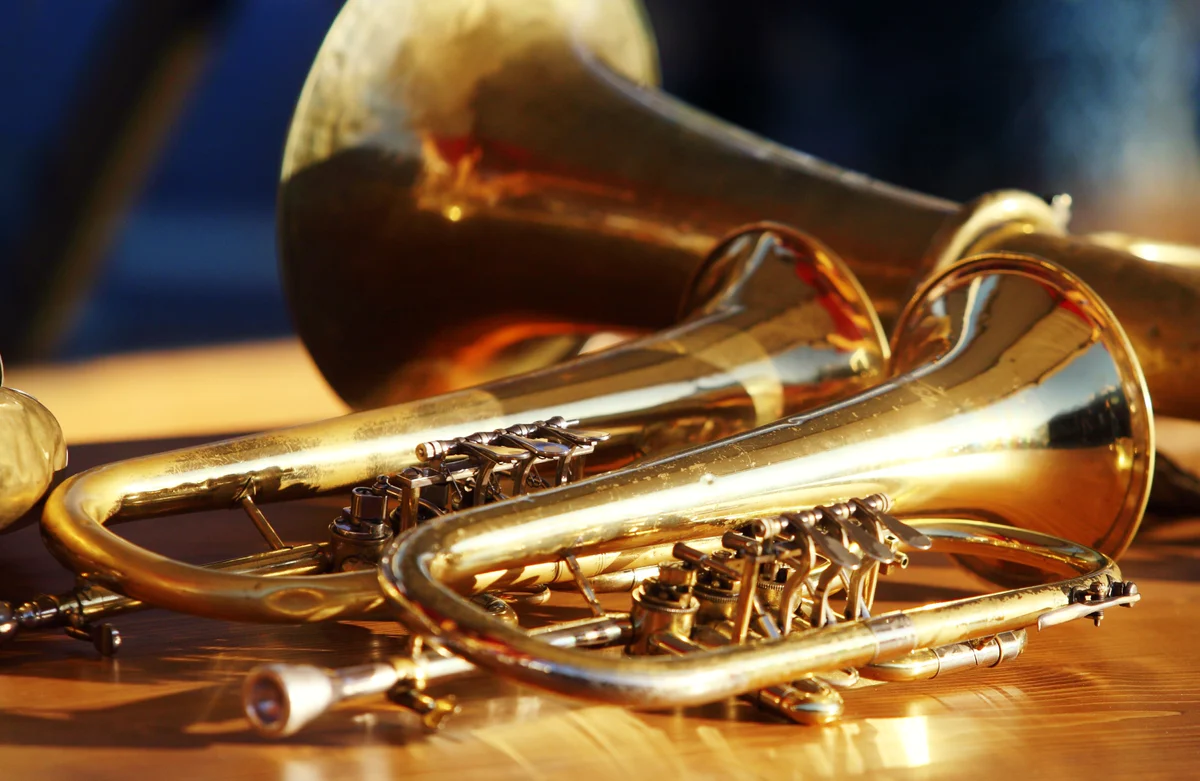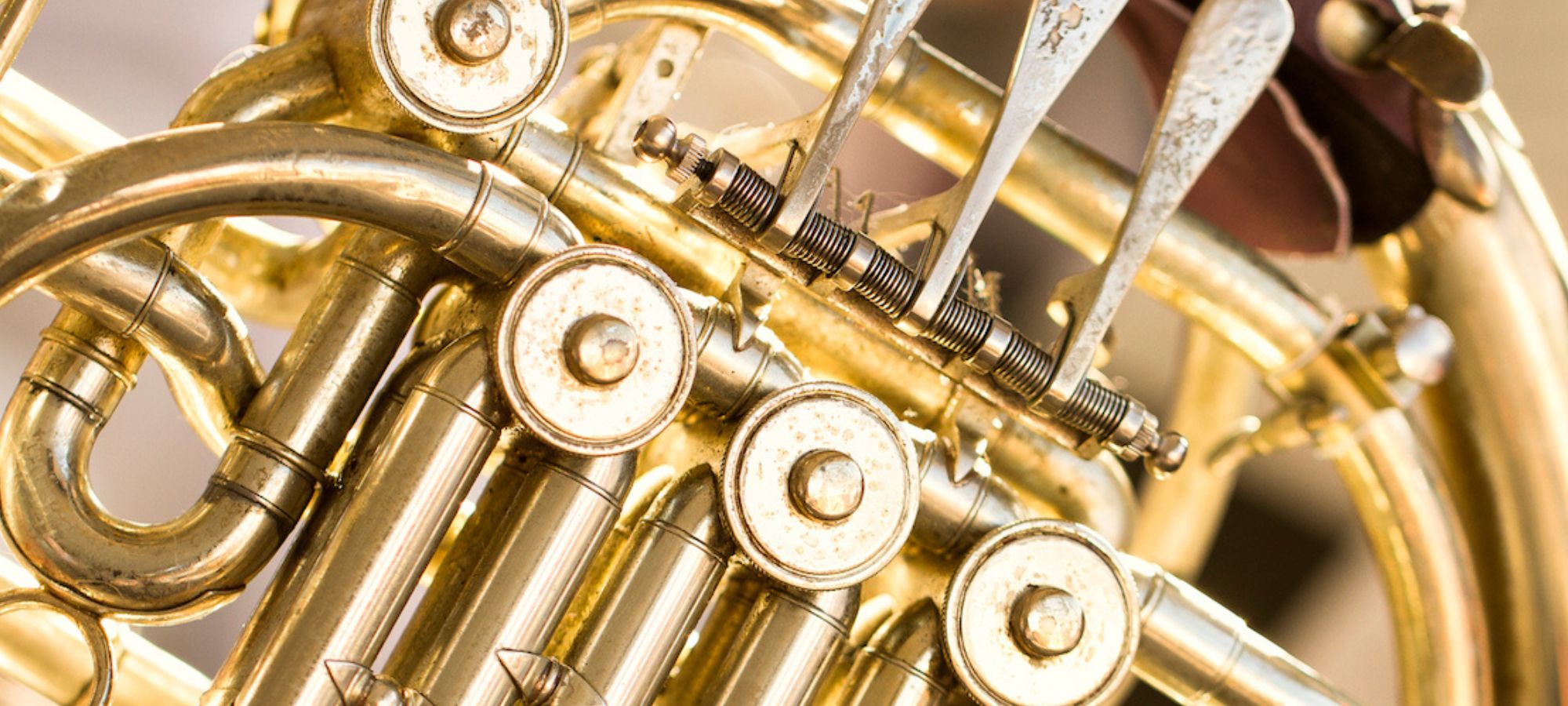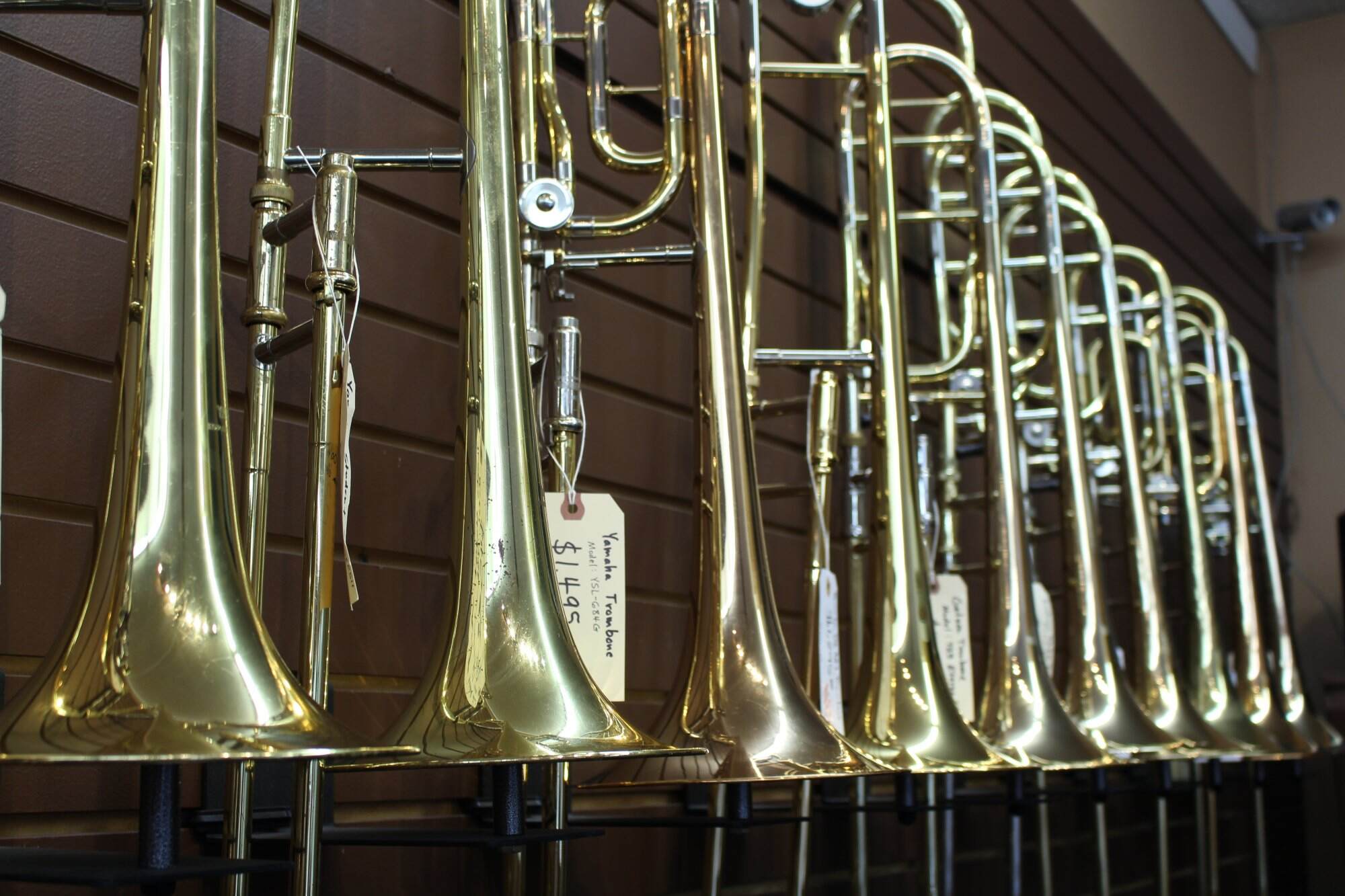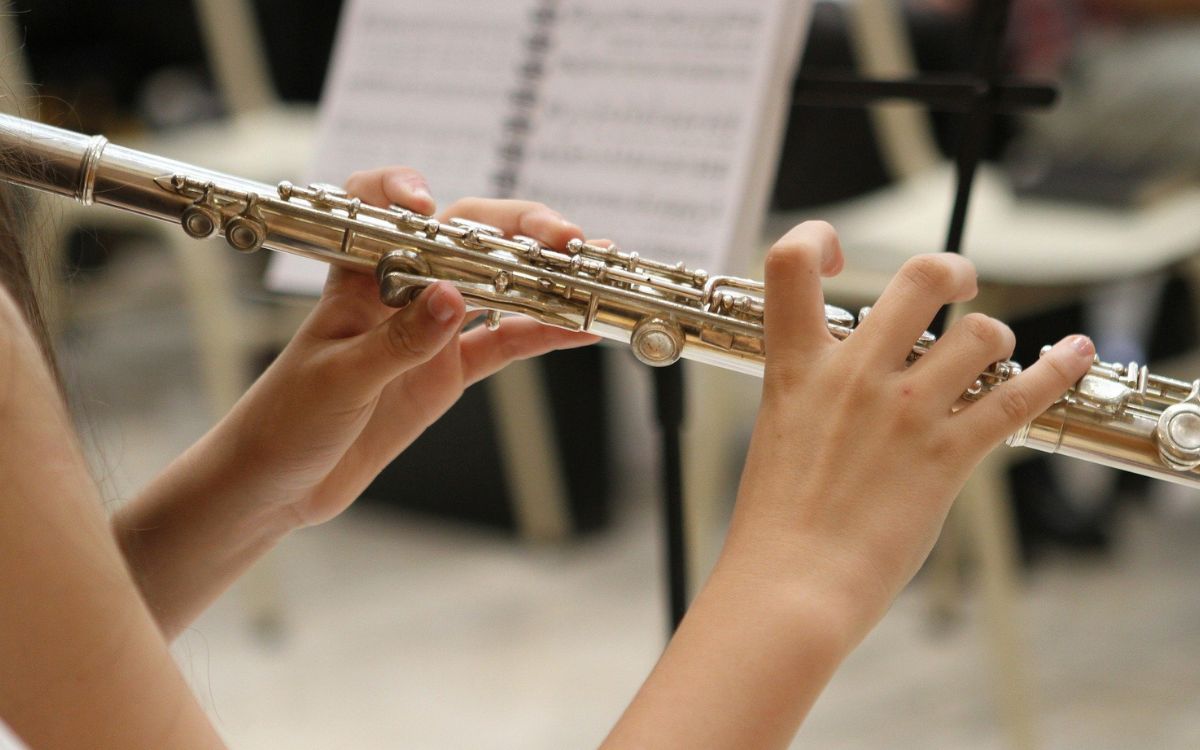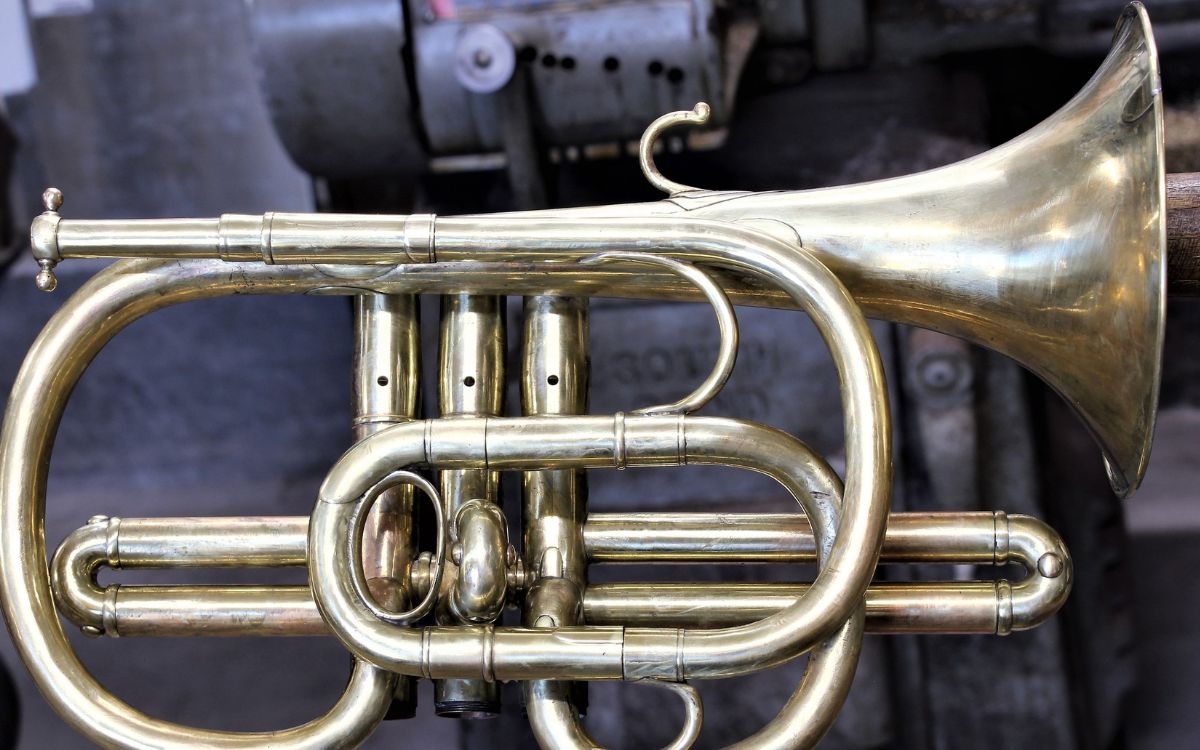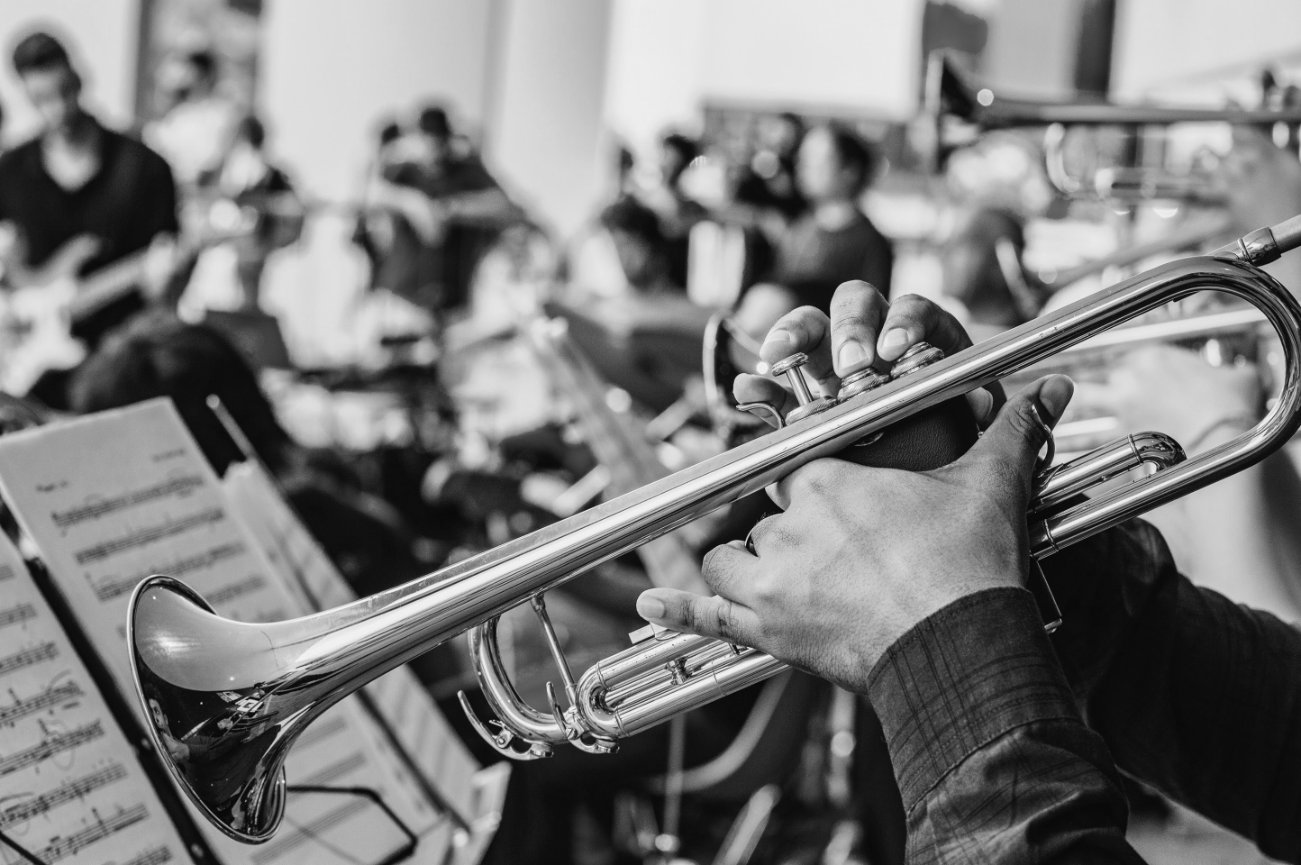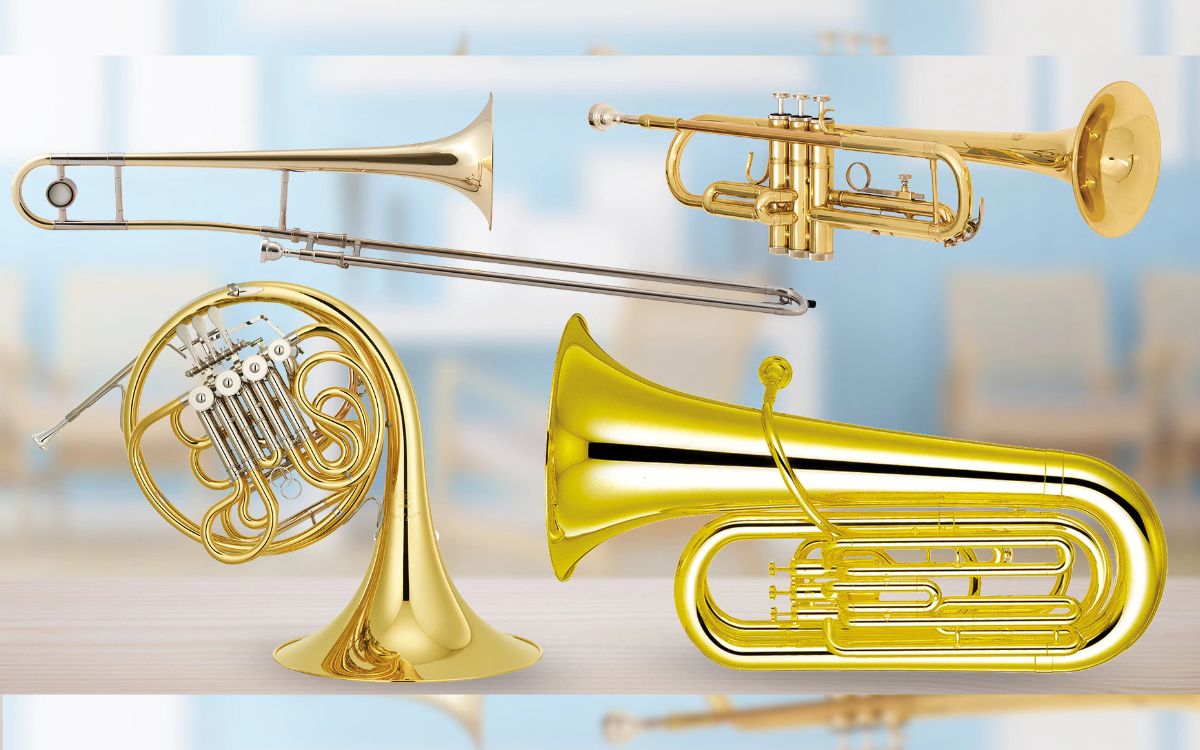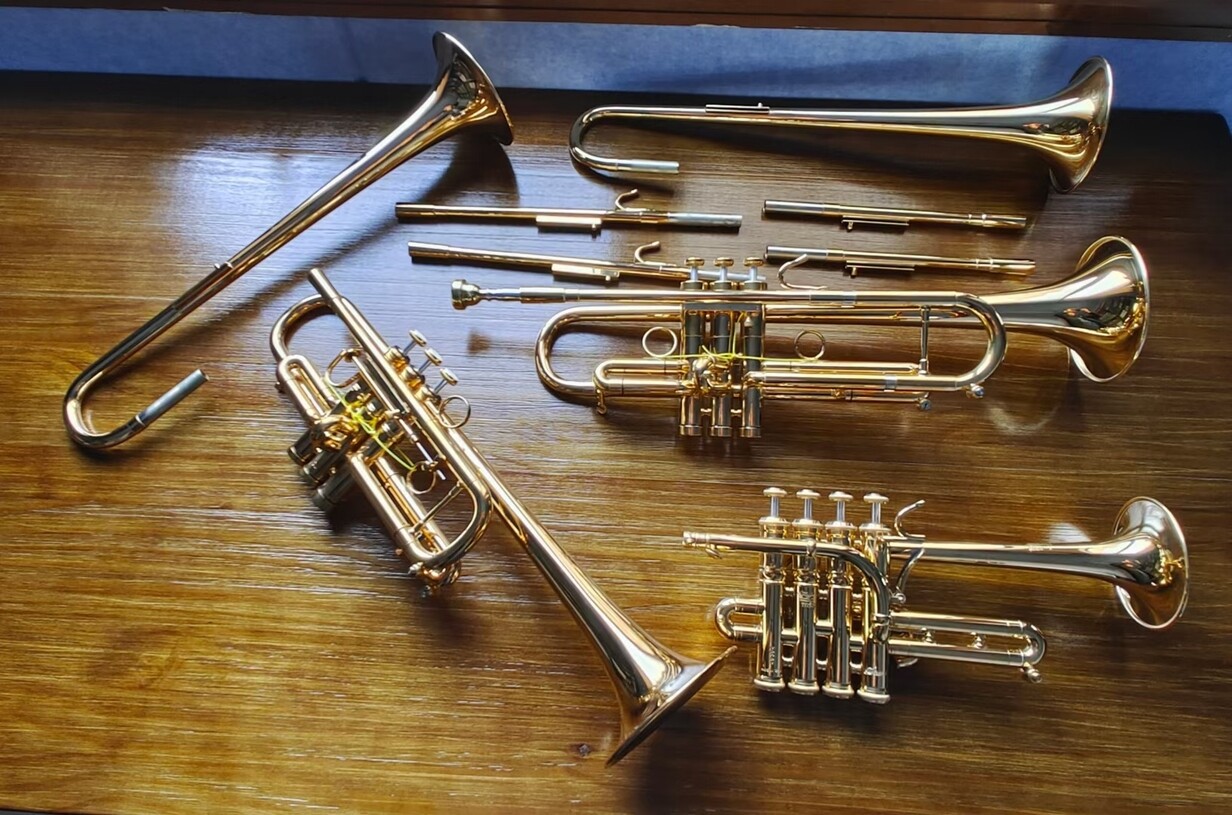Home>Instruments>Brass Instruments>How Are Brass Instruments Used In The Military Today
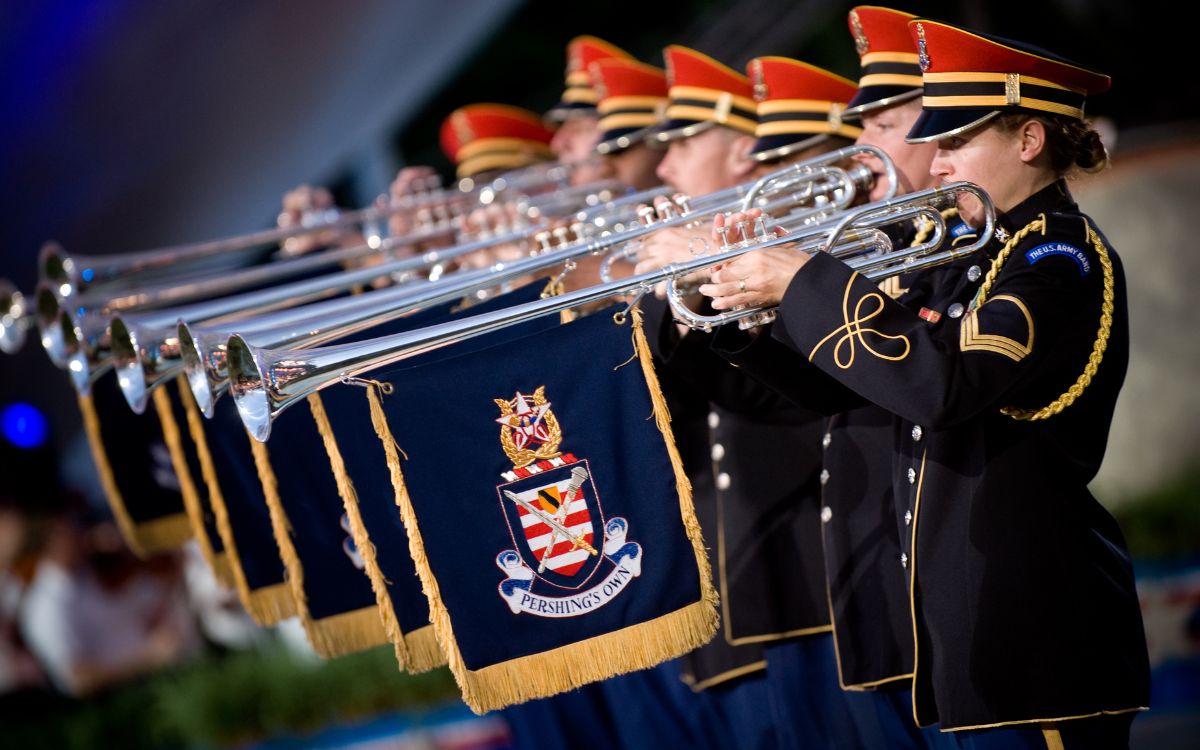

Brass Instruments
How Are Brass Instruments Used In The Military Today
Modified: January 22, 2024
Discover how brass instruments play a crucial role in the military today, enhancing ceremonies, creating powerful sounds, and bringing harmony to military bands.
(Many of the links in this article redirect to a specific reviewed product. Your purchase of these products through affiliate links helps to generate commission for AudioLover.com, at no extra cost. Learn more)
Table of Contents
- Introduction
- History of Brass Instruments in the Military
- Use of Brass Instruments in Ceremonial Events
- Brass Instruments in Military Bands
- Role of Brass Instruments in Military Signals
- Brass Instruments in Military Marches
- Brass Instruments in Military Parades
- Role of Brass Instruments in Military Recruitment
- Conclusion
Introduction
From the battlefields of ancient civilizations to the modern military parades, brass instruments have played a pivotal role in the military. These majestic instruments have a deep and resonant sound that can inspire troops, commemorate fallen soldiers, and uplift the morale of the armed forces. The rich history and versatile nature of brass instruments make them an integral part of military culture and tradition.
Brass instruments, with their distinctive shiny appearance and melodic tones, have captivated audiences and musicians alike for centuries. They are not only used in military bands and ensembles but also serve a variety of purposes in different military scenarios.
In this article, we will delve into the history and significance of brass instruments in the military. We will explore their role in ceremonial events, military bands, signals, marches, parades, and even recruitment. Whether adorning the battlefields or gracing the halls of military academies, brass instruments have long been revered as symbols of honor, valor, and discipline.
History of Brass Instruments in the Military
The presence of brass instruments in military settings dates back to ancient civilizations. The ancient Egyptians, Greeks, and Romans employed brass instruments such as trumpets and horns for various purposes, including signaling commands and boosting morale on the battlefield.
During the Middle Ages, brass instruments continued to be used in warfare. Trumpets and horns were particularly popular due to their loud and piercing sound, which could be heard over long distances. These instruments played a crucial role in military strategies, communicating commands and coordinating troop movements.
In the 18th and 19th centuries, brass instruments played an increasingly prominent role in military music. As military bands became more prevalent, brass instruments such as the cornet, trombone, and tuba were added to the ensemble, providing a powerful and vibrant sound. Military bands served not only as musical entertainment but also as a means of conveying signals and raising morale among soldiers during marches and battles.
The invention of valves in the 19th century revolutionized brass instruments, allowing for greater flexibility and a wider range of notes. This innovation opened up new possibilities for military music, enabling musicians to play intricate melodies and harmonies.
Throughout the 20th century, brass instruments continued to evolve and adapt to the changing needs of the military. They remained a vital part of military bands, lending their grand and commanding presence to important events and ceremonies.
Today, brass instruments in the military serve multiple purposes. They are not only symbols of tradition and heritage but also key components of military orchestras, military bands, and ceremonial events. The deep, resonant sounds of brass instruments continue to evoke a sense of pride, honor, and unity among military personnel and civilians alike.
Use of Brass Instruments in Ceremonial Events
Brass instruments hold a special place in ceremonial events within the military. The grandeur and regal nature of these instruments make them a perfect choice for honoring significant occasions and paying tribute to fallen soldiers.
One of the most well-known uses of brass instruments in ceremonial events is the playing of “Taps” during military funerals. This hauntingly beautiful bugle call, typically performed on a trumpet or cornet, symbolizes the final farewell to a fallen comrade. Its somber and melancholic notes evoke a sense of reverence and solemnity, leaving a lasting impression on all who hear it.
Brass instruments also play a vital role in military parades and official ceremonies. Whether it’s the stirring sounds of a trumpet fanfare signaling the arrival of a high-ranking officer or the triumphant melodies of a military band leading a processional march, brass instruments lend an air of dignity and formality to these events.
Furthermore, brass instruments are often featured in military tattoo performances. These elaborate displays of precision and skill bring together military bands, drill teams, and other performers to showcase the rich musical heritage of the armed forces. The resounding sound of trumpets, trombones, and other brass instruments resonates throughout the stadium, creating a sense of unity and pride among both participants and spectators.
Brass instruments also find a place in ceremonies celebrating military achievements and milestones. Whether it’s the commissioning of a new ship, the promotion of a distinguished officer, or an official flag-raising ceremony, the powerful sound of brass instruments adds a touch of sophistication and grandeur to these significant occasions.
Overall, the use of brass instruments in ceremonial events within the military is steeped in tradition and symbolism. They serve as a tribute to the valor and sacrifice of those who have served and continue to serve in the armed forces, while also instilling a sense of pride and patriotism in all who witness these solemn and distinguished occasions.
Brass Instruments in Military Bands
Military bands have a long-standing tradition and are an iconic representation of military culture. Brass instruments play a central role in these bands, adding depth, power, and versatility to their musical performances.
One of the key functions of brass instruments in military bands is to provide a strong and commanding sound. Instruments such as trumpets, trombones, and tubas produce rich and resonant tones that can cut through the air and capture the attention of both military personnel and civilian audiences.
The brass section in a military band typically consists of a variety of instruments that collectively create a harmonious and well-rounded sound. From the piercing sound of the trumpets to the warm and mellow tones of the French horns, each instrument contributes to the overall musical texture and adds color to the performance.
Military bands perform a wide range of musical genres and styles, including marches, patriotic tunes, ceremonial music, and even popular songs. Brass instruments are versatile enough to adapt to different musical styles, allowing military bands to captivate audiences with their diverse repertoire.
In addition to their musical capabilities, brass instruments in military bands also serve a practical purpose. They are often used to provide signals or cues during formations and drills, assisting in maintaining the precision and synchronization of military personnel.
Moreover, military bands help maintain morale and boost the spirits of troops during military campaigns and deployments. The stirring music played by brass instruments can uplift the mood of soldiers and provide a sense of unity and motivation, fostering a strong bond among the military community.
Military bands, with their impressive display of discipline, talent, and musical prowess, represent the dedication and professionalism of the armed forces. Brass instruments play an indispensable role in bringing this musical tradition to life, captivating audiences and instilling a sense of pride in the military’s rich heritage.
Role of Brass Instruments in Military Signals
Brass instruments have historically played a crucial role in military communication and signaling. The distinctive sound and projection capabilities of these instruments make them ideal for transmitting important messages across the battlefield or within military camps.
One of the primary uses of brass instruments in military signals is the conveyance of commands. The clear and piercing sound of a trumpet or bugle can cut through the noise and chaos of a battle, allowing officers to communicate orders and coordinate troop movements effectively. Each note played on these instruments has a specific meaning, enabling soldiers to respond swiftly and accurately to changing circumstances.
In addition to transmitting commands, brass instruments are used to signal specific actions such as the charge, retreat, or cease-fire. These signals provide essential cues to soldiers, helping them understand the next course of action in the heat of battle.
Furthermore, brass instruments are employed in military camp routines to mark the beginning and end of daily activities. The sounds of reveille and taps, played on the trumpet or bugle, signify the start and end of the day respectively, providing soldiers with a clear indication of when to wake up or rest.
Brass instruments are also utilized in military ceremonies and events to signal transitions and mark significant moments. For example, the distinctive call of “Assembly” on a trumpet or bugle signals soldiers to gather at a specified location, while the “Adjutant’s Call” alerts personnel to stand at attention for the arrival of a commanding officer.
The role of brass instruments in military signals extends beyond the battlefield. In training exercises or during military drills, they are used to coordinate the movements of troops and ensure precision and synchronization.
The versatility and clarity of sound produced by brass instruments make them essential tools for military signals. They enable officers to communicate effectively and efficiently, ensuring that soldiers receive vital information promptly and can respond accordingly. Brass instruments in military signals exemplify the importance of teamwork, discipline, and clear communication in the armed forces.
Brass Instruments in Military Marches
Military marches have a long-standing tradition and serve several important purposes within the armed forces. Brass instruments play a pivotal role in these marches, providing the driving rhythm and majestic sound that accompany the synchronized movements of troops.
One of the primary functions of brass instruments in military marches is to maintain the tempo and cadence. The bold and rhythmic sounds of trumpets, trombones, and sousaphones create a strong foundation for soldiers to march in step and maintain proper formation. The crisp and precise notes produced by these instruments help ensure that the entire unit moves as one, projecting an image of unity, discipline, and precision.
The commanding sound of brass instruments in military marches also serves to boost the morale and spirits of troops. The uplifting melodies and rhythmic beats create a sense of camaraderie and pride among soldiers, motivating them to march with determination and resolve. The powerful sound of brass instruments reverberating through the air resonates not only with the soldiers but also with the spectators, instilling a sense of admiration and reverence for the military.
Brass instruments also provide musical interludes and flourishes during military marches, adding an element of artistry and sophistication to the performance. These musical embellishments serve as moments of relief amidst the disciplined movement, allowing the musicians to showcase their technical skills and creativity.
Furthermore, brass instruments in military marches act as a form of communication and coordination. The different sections of the brass ensemble, such as trumpets, trombones, and tubas, often have specific roles and signals that they convey through their playing. These signals provide important cues for the soldiers, indicating when to make turns, halt, or change formations.
In addition to their functional aspects, brass instruments in military marches also have symbolic significance. They represent the heritage, strength, and tradition of the armed forces. The sight and sounds of a military band leading a march, with their gleaming brass instruments and crisp uniforms, evoke a sense of national pride and admiration for the military’s dedication and commitment.
In summary, brass instruments are an essential component of military marches. They provide the rhythmic foundation, uplifting melodies, and coordination necessary for soldiers to march with precision and unity. These instruments embody the spirit of military discipline and instill a sense of pride and admiration in all who witness the spectacle of a military march.
Brass Instruments in Military Parades
Military parades are grand displays of military prowess, precision, and discipline. Brass instruments play a prominent role in these parades, providing the stirring and majestic sounds that accompany the synchronized movements of troops.
One of the key functions of brass instruments in military parades is to create a sense of pageantry and grandeur. The bold and powerful sounds produced by trumpets, trombones, and other brass instruments resonate through the air, commanding attention and setting the tone for the parade. The regal melodies and fanfare-like flourishes create an atmosphere of celebration and national pride.
Brass instruments in military parades also serve as a form of communication and coordination. The different sections of the brass ensemble, together with other components of the military band, work in harmony to convey signals, cues, and transitions. These cues help guide the movements of troops, ensuring that they march in sync, execute precise formations, and maintain an orderly and impressive display.
The versatility of brass instruments allows them to adapt to various musical styles and genres, making them ideal for military parades. Whether playing traditional marches, patriotic anthems, or contemporary compositions, brass instruments create an immersive and captivating musical experience for both participants and spectators.
Furthermore, brass instruments in military parades contribute to the overall visual spectacle. Their gleaming appearance, combined with the uniformed precision of the musicians, accentuates the sense of discipline and professionalism exhibited by the military. The synchronicity of the movements, accompanied by the resounding sound of brass instruments, generates a sense of awe and admiration among onlookers.
In addition to their functional and aesthetic contributions, brass instruments in military parades represent the heritage and tradition of the armed forces. They symbolize the strength, valor, and unity of the military personnel, evoking feelings of national pride and admiration. The sight and sound of a military band leading a parade, with their brass instruments held high, create a powerful and memorable impression on both spectators and participants.
In summary, brass instruments play a vital role in military parades by creating a sense of pageantry, providing communication and coordination, enhancing the visual spectacle, and embodying the spirit of the armed forces. Their resounding sound and commanding presence contribute to the overall majesty and significance of military parades, leaving a lasting impression on all who witness these impressive displays.
Role of Brass Instruments in Military Recruitment
Brass instruments play a unique and impactful role in military recruitment efforts. Their powerful sound and captivating melodies are utilized to attract individuals to join the armed forces and inspire a sense of pride and patriotism.
One of the ways in which brass instruments contribute to military recruitment is through their presence in recruitment events and campaigns. Military bands, composed of talented musicians playing brass instruments, often perform at recruitment fairs, public gatherings, and community events. The stirring sound of these instruments not only entertains but also serves as a symbol of the military’s dedication and discipline, capturing the attention of potential recruits.
Brass instruments have an innate ability to evoke emotions and create a sense of pride and honor. When potential recruits hear the captivating melodies of trumpets, trombones, and other brass instruments, they may feel a deep connection to the values and traditions represented by the military. This emotional response can greatly influence their decision to consider a career in the armed forces.
Military bands, with their proficiency in playing brass instruments, showcase the level of talent and professionalism within the armed forces. The skill and precision demonstrated by these musicians not only highlight the artistic aspect of military life but also represent the high standards and dedication expected from all military personnel. This display of excellence can be a compelling factor for individuals who aspire to be part of a respected and disciplined organization.
In addition to recruitment events, brass instruments are also utilized in advertising and promotional materials. Whether in television commercials, online videos, or print campaigns, the sound of brass instruments adds an element of excitement and inspiration. The combination of captivating visuals and powerful melodies creates a dynamic recruitment message, encouraging individuals to explore the opportunities available within the military.
Furthermore, brass instruments in the military band serve as powerful ambassadors. Their performances not only attract potential recruits but also serve as a representation of the military’s values, ideals, and sense of duty. The presence of brass instruments in recruitment efforts serves to strengthen the overall image of the military as an organization of significance and integrity.
In summary, the role of brass instruments in military recruitment is multifaceted. They create an emotional connection, showcase musical talent and professionalism, feature in advertising campaigns, and serve as powerful ambassadors to attract individuals to the armed forces. Through their captivating sound and presence, brass instruments inspire a sense of pride, patriotism, and admiration for the military, influencing and encouraging individuals to consider a career in service to their country.
Conclusion
Brass instruments hold a significant and diverse role within the military. From their historical use in ancient civilizations to their presence in modern-day military bands and parades, these instruments have played a vital role in transmitting commands, fostering unity, and inspiring a sense of pride and patriotism among military personnel and the public.
The rich history of brass instruments in the military is a testament to their enduring appeal and cultural significance. From the ancient battlefields to the modern ceremonial events, the bold and commanding sound of brass instruments has served as a symbol of honor, discipline, and strength.
Whether in ceremonial events or military parades, brass instruments provide the grandeur and regality necessary to honor fallen soldiers and commemorate significant milestones. They convey messages, mark transitions, and add a touch of artistry to the military’s disciplined formations.
Military recruitment efforts are also enhanced by the presence of brass instruments. Their emotive and captivating sound helps to create a sense of pride and inspiration, encouraging individuals to consider a career in the armed forces. Military bands, with their talented brass musicians, showcase the excellence and professionalism expected within the military, serving as powerful ambassadors to attract potential recruits.
In conclusion, brass instruments have a deep-rooted place in the military. They are not only tools of communication and musical expression but also symbols of tradition, discipline, and national pride. The versatility, power, and commanding presence of these instruments make them integral to military bands, ceremonial events, signals, marches, parades, and recruitment efforts. The enduring legacy and cultural significance of brass instruments demonstrate their role in connecting and inspiring military personnel and civilians, embodying the spirit and values of the armed forces.

